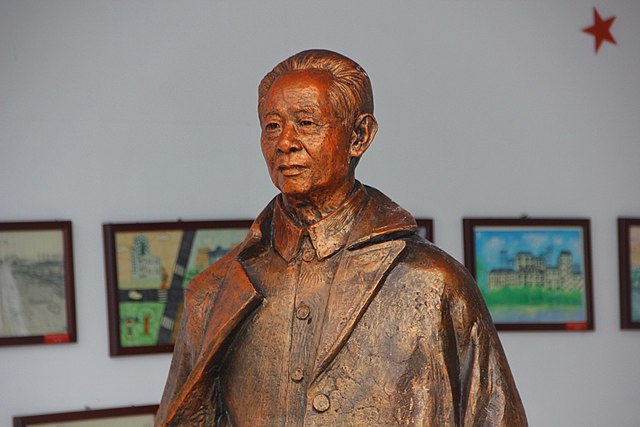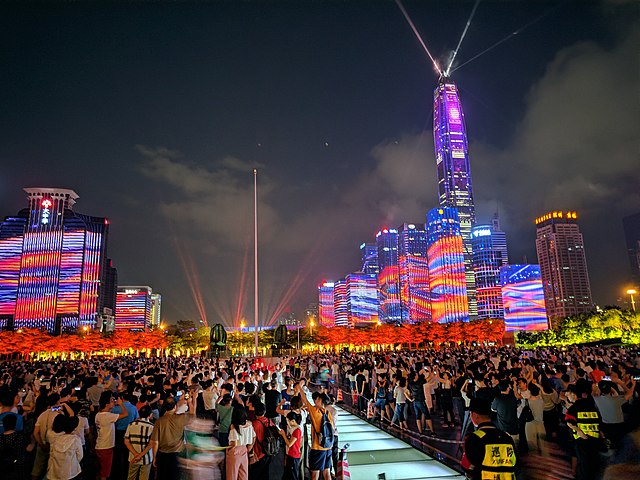The Chinese New Left is a term used in the People's Republic of China to describe a diverse range of left-wing political philosophies that emerged in the 1990s that are critical of the economic reforms instituted under Deng Xiaoping, which emphasized policies of market liberalization and privatization to promote economic growth and modernization.
Cui Zhiyuan is the first person to be called China's "New Left".
A building and a wall in Nanjie Village, on which is written "Mao Zedong is a man, not a god, but Mao Zedong Thought is better than god". (毛泽东是人不是神,毛泽东思想胜过神)
"Long live Chairman Mao! Long live Chairman Gonzalo! Protracted People's War!" (毛主席万岁!贡萨罗主席万岁!持久人民战争!) graffiti on a wall at Qinghua South Road, Beijing, 6 December 2021.
The Chinese economic reform or Chinese economic miracle, also known domestically as reform and opening-up, refers to a variety of economic reforms termed "socialism with Chinese characteristics" and "socialist market economy" in the People's Republic of China (PRC) that began in the late 20th century, after Mao Zedong's death in 1976. Guided by Deng Xiaoping, who is often credited as the "General Architect", the reforms were launched by reformists within the ruling Chinese Communist Party (CCP) on December 18, 1978, during the "Boluan Fanzheng" period. The reforms briefly went into stagnation after the 1989 Tiananmen Square protests and massacre, but were revived after Deng Xiaoping's southern tour in 1992. The reforms led to significant economic growth for China within the successive decades, considered to be one of the economic miracles in human history. In 2010, China overtook Japan as the world's second-largest economy by nominal GDP, before overtaking the United States in 2016 as the world's largest economy by GDP (PPP). On the other hand, a parallel set of political reforms were launched by Deng and his allies in the 1980s, but eventually ended in 1989 due to the crackdown on Tiananmen Square protests, halting further political liberalization.

The image of Deng Xiaoping in Shenzhen, Guangdong, one of the first special economic zones approved by Deng in 1979
Hu Yaobang, then General Secretary of CCP, played an important role in implementing the reforms together with Zhao Ziyang, then Premier of China.
Shenzhen, one of the first special economic zones of China and the "Silicon Valley of China". Notable high-tech companies such as Huawei, ZTE and Konka were all founded in Shenzhen in the 1980s.
The slogan "Time is Money, Efficiency is Life" from Shekou, Shenzhen, representing the "Shenzhen speed"







